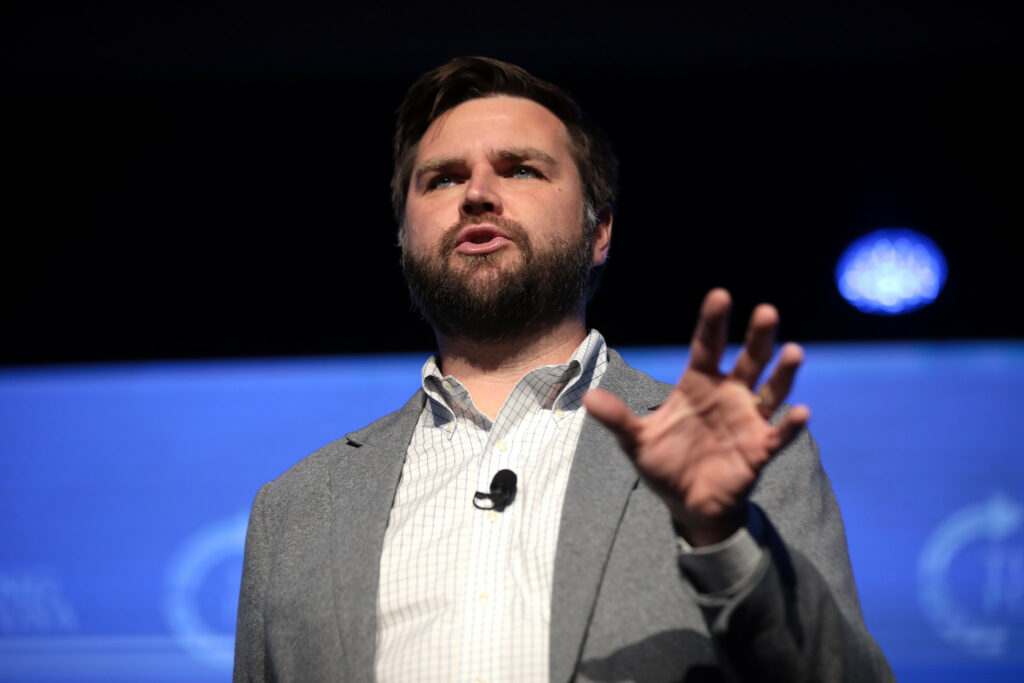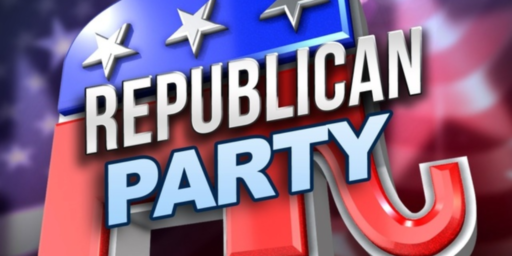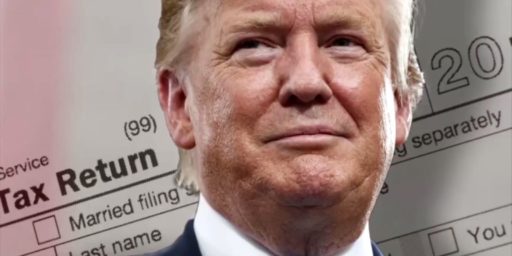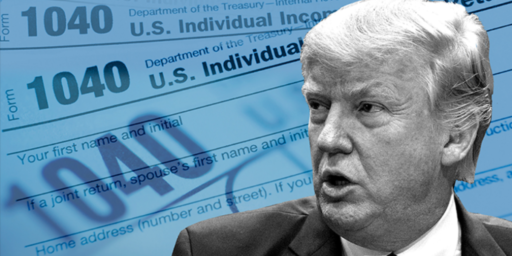Another Example of Primaries in Action
The Ohio GOP Senate contest.

Without getting into a discussion of JD Vance himself, or of the role of Trump’s endorsement (both of which are topics in and of themselves) let me note a couple of numbers that illustrate some ongoing points I often try to make about party primaries.
Vance won the Republican nomination for Senate by winning 32.2% of the GOP primary vote, which is to say a simple majority (i.e., plurality) of that vote. In raw votes, he won 340,911 (as of the current count). So, because the plurality winner wins in OH primaries, that means that 67.8% of Ohio Republicans (or 718,122 voters) wanted a different candidate.
Note that the official number of registered voters in Ohio on November 3, 2020 was 8,073,829 and the estimated voting-age population of Ohio is 9,124,576. So, using those numbers in a back-of-the-envelope kind of way, 4.22% of registered voters or 3.74% of the voting-age population voted for Vance to be the GOP nominee. (Note: these are approximate figures since I do not have the exact numbers for this week, and the final vote totals will change–but the basic numbers work for this discussion),
Given the partisan lean of Ohio, which has increasingly been on the GOP side (the state was +8.1% for Trump in 2020) and the general trend for mid-terms (i.e., harder for the party of the president) the odds are heavily in favor of Vance winning the seat.
I would note that the Ohio Republican Party and all who identify with it are likely to fall in line with Vance because he is their nominee. I would note that instead of the Ohio Republican Party, as a collective entity, selecting a candidate that fits its views (whatever those may be), the process produces a candidate and then “the party” (an amorphous entity at best) is obligated to support that person and become more like the selected candidate than the other way around. Think of it this way: if any part of a person’s livelihood and/or personal identity is wrapped up in the Republican Party, what is such a person likely to do? Supporting a Democrat is being a traitor and could be career suicide (and, at a minimum, people tend not to want to reassess their identities).
Note: I am talking here, as I typically am, about how people actually behave, not how I wish they might behave, or what my personal preferences for outcomes might be. The whole point of systematic social science (or, at least one of them) is to determine how mass behavior actually works. Pontificating about how it ought to be based on one’s personal preferences is punditry at its worse, and that is not my goal.
I know that voters and party rank-and-file have choices, but let’s please not kid ourselves on the dynamics at work here. This is how parties get shaped by primaries, rather than parties shaping candidates.
Put another away: Vance did not have to prove himself to be “Republican worthy” to compete for the label, but now he gets to define what being an Ohio Republican means, at least for this particular race. And since the majority of Ohioans identify as Republican, he is likely to be the next Senator from Ohio.
Worse, because those Ohioans who have long thought of themselves as Republicans will be predisposed to support Vance because of the R after his name, many will rationalize away a lot of the objectively problematic things that Vance has said, and will say, about race and other topics. Whether one likes it or not (and I know a lot of the readers are going to push back on this) this is how it works. And this is how a party, and then its voters, move on issues.
(Again, I know everyone wants to think that the line of causality is issues—>partisan preference, but the reality is that on a lot of topics, it is partisan preferences—>issues).
My point about primaries as a problem is this: the evolution of the parties is not driven by a coherent strategy. Instead, it is happenstance to a degree. Moreover, it is not fully visible to most voters. Instead, most voters simply know their team and adapt to whomever is on the ballot.
Consider: if most voters truly cared about the nomination process, then the differential between primaries turnout and general election turnout wouldn’t be as wide as it is. Vance will have won his nomination with less than 400,000 votes, but he will likely win well over 2,000,000 votes in November.
As I noted in a recent post: we build our parties backward (this is a thought that has been on my mind of late). Instead of the parties having to build a coalition amongst the factions within a party, the primaries simply produce a fait acompli candidate without any vetting save the primary vote (and in this case, with a relatively small vote share).
A winning primary candidate then steps into broad support in a given district or state because there is a large pool of voters ready to vote for their party. (Again, I know everyone here is convinced that they don’t vote that way, but the odds that most readers don’t already know who they are voting for, partywise, in pretty much every contest in 2024 or 2026 and beyond is pretty damn low. And we all have our reasons, which we think are pretty good ones, but your political opponents think the same way).
At any rate, my point about this being “backwards” is that candidates don’t have to build large coalitions, all they have to do is win small segments and then step into broad support that comes preassembled, so to speak.
This also explains why we don’t get serious third parties. It is simply way easier to try and win a R or D primary than it is to form a new party.
And sometimes, like with Trump in 2016, the nominee can really move the party in a distinct direction.
(More to come on this topic).






It’s not so much that I disagree with this analysis, I don’t. I am interested though in what drives people to change affiliation – to change parties. Is it that “what you are running on is repulsive to me” or is it more “I don’t feel like I belong to this group”? Is there a way this can be studied empirically?
And to think (or remember) that primaries were offered as a solution to smoke filled rooms and political bosses. But yes, they are now a leading indicator of our broken governing system.
Nothing to add but bravo. Really smartly explained.
Having come of political age in Alabama, which has runoffs for party primaries, it still baffles me that most states don’t. Ballotpedia tells me that only 10 states do—all but one of the Red states. I suspect, but do not know for sure, that this is because, as was the case in Alabama when I was coming up, the winner of the party primary (then Democratic, now Republican) was almost certainly going to win the office.
Is there a reason primary elections are run by the government instead of by the parties themselves? Is the idea that the total number of candidates is winnowed down to make general election voting clearer? It seems to me that a combination of some version of ranked choice/instant run off voting in a single general election and parties deciding whom to endorse on the general ballot any way they want to would result in less of the type of distortion noted in the OP, but my opinion is poorly informed so I welcome any comments to correct it.
@James Joyner: You tell me, but wouldn’t states that operate like California be included in your accounting? (Agree that its good on Alabama for doing it.) Its a free-for-all open primary, and the top two vote getters, regardless of party affiliation are on the fall ballot. I mean, that avoids the worst situation Steven describes. I think a few other states do this now, don’t they?
@Jay L Gischer: a potential problem with the top two system is that votes from a particular policy point of view can be spread over enough candidates that two candidates from an opposing point of view make it through to the general and shut out a more popular point of view entirely. Example: a strongly Republican state has 5 Republican candidates while fielding two Democrats. Each Republican candidate gets 20,000 votes, while each Democrat gets 25,000 votes. The state will then have two Democrats on the general ballot and no republicans, despite the fact that republican voters outnumbered democrats 2:1. Granted that this isn’t too likely to happen in practice, but stranger things have happened.
@Jay L Gischer:
Louisiana also has a jungle primary, doesn’t it?
Personally, I really dislike the jungle primary and, if there are a lot of candidates, the top two can have a similarly low percentage of the vote as in party primaries.
When a seat leans heavily Democratic or Republican, there are often a lot of candidates from the favored party and only one or two from the smaller party, running the risk that the voters will have no candidate from their own party at all. Write-in votes are prohibited, so there’s no recourse should that happen.
The jungle primary is not a solution to the problem.
Who is the Democratic Party equivalent of JD Vance? Republicans didn’t rationalize away Roy Moore’s odiousness. They don’t have to rationalize away JD Vance’s.
Republican voters choose to listen to the endorsement of Trump, an awful person. Republican voters chose to give JD Vance the most votes in the primary. If voters in Ohio choose to elect him (which they do *not* have to, let’s be crystal clear) there is no valid excuse.
The “party of personal responsibility” needs to stop shifting blame and making excuses. Republicans and Americans need to be held accountable for our decisions.
@James Joyner:
And yet even with these rearranged deck chairs that are supposed to be a panacea, they still came up with Roy Moore. Now what?
Illinois Black Republican Governor Primary Candidate plays race card.
“I’m their worst nightmare” is an obvious rip of a scene in the Eddie Murphy film 48 Hrs.
In a more recent ad candidate Irvin says he is not afraid of millionaire Illinois Democratic Governor J. B. Pritzker. I wouldn’t be either if I had support like this:
test
test A
NO EDIT KEY FOR YOU!
There were a fair number of “Reagan Democrats” and a fair number of Rs seem to have been driven to becoming Ds in reaction to W and Trump. But yes, party switching seems to be small numbers. With more Ds than Rs nationally, but not enough to overcome the structural disadvantages, it looks like Rove was right, at least for prez they’re all turnout elections now. Hillary lost 3016 mostly because Ds had held the WH for two terms, but enthusiasm for Trump also drove R turnout. In 2020 enthusiasm for Trump still drove R turnout, but revulsion with him drove D turnout even higher. And Biden carefully avoided driving R turnout through negative partisanship.
Somebody had a 21st century, negative partisanship version of the median voter theory. The winning candidate is the one who least repels the median voter
@DK: Look, I understand why you are upset with Republicans, but you are missing the broader point because you keep insisting that my point is absolving Reps of responsibility, but that’s not what I doing, nor is it the point.
I am trying to get people to understand the way in which these structures contribute to the outcomes we are dealing with. I would note that they amplify the possibility of problematic factions to a given party to rise to prominence and then reshape the party in a far from virtuous cycle
Would you prefer I shift my wrtings to “Republicans bad”? That would take less work on my part, but it would be even more redundant than I already tend to be 😉
@Steven L. Taylor: BTW: I have never said that voters and parties aren’t responsible for what they produce. But I am desperately trying to get people to understand how structures can increase (or decrease) the odds of bad outcomes.
@Steven L. Taylor:
Superficially, yes. But functionally, no, that would be boring haha
Forgive (ignore or refer) me if you’ve written about this, but what would this look like in practice? That is, how would the party (a collection of individuals who have shared and contrasting preferences) select the candidate?
A vote? (But wouldn’t that be similar to the current situation?)
Or perhaps a vote wherein only certain people are allowed to vote? (But who are those people and how do they get so anointed?)
I guess my struggle* here is with the following: if the most extreme/partisan/motivated/etc people vote in the primary, wouldn’t those same people show up and make their voices heard in the alternative system?
*There’s a high likelihood that this is due to ignorance. My own, not yours. Obviously.
@James Joyner:
Most states are cheap. One of the disadvantages of mail ballot states is that every state-wide election requires that a ballot be sent out to every registered voter. (In my mail ballot state, two primary ballots for unaffiliated voters, as they’re allowed to vote in one primary or the other, but not both.) We’re not as big as Ohio, only 4.2M registered voters. But for the first primary round, we have to go through the full process of printing and mailing ~6M ballots and 4.2M envelopes (because independents get a ballot for each major party but delivered in one envelope). Then for a second round we have to print and mail… ~6M ballots and 4.2M envelopes. Probably on much shorter notice, so the companies equipped to do the job will charge a premium.
Back in the day, many states were reluctant to adopt even single-round primaries because the election cost fell on the state/local government, whereas the bill for caucuses fell on the parties. This will be an issue in Iowa in the 2023 session, when the legislature resists picking up the election costs if the national parties demand a primary.
@Mimai:
Back in the day, the hoi polloi didn’t get anywhere close to the back rooms where the candidates were chosen. Legislative and executive branch office holders, county and state party leaders. If you weren’t putting in a ton of time year-round on party business, you didn’t get an invitation.
@Michael Cain:
Indeed. And we live in a very different age now.
Information (and misinformation and disinformation) is widespread. So called “experts” and “authorities” are questioned (or disregarded entirely). Martin Gurri and many others have written a lot about this.
I don’t see us going back to the day anytime soon. Hence, I wonder how an alternative to the current (awful) primary system gets around this.
@Mister Bluster:
For giggles I looked at his website. It’s remarkably boring. Like, all about lowering taxes (blah) and being opposed to “defund the police” (Reynolds favorite thing). Nothing else. It’s almost as if they have to lie their asses off to have a chance.
Also, Ken Griffen is an evil motherfucker. He can go ahead and die a horrible death. He actively makes this state worse with his presence.
The process has strange and unpredictable consequences in Congress, especially the Senate where every seat is precious and individual idiosyncracies are overlooked in order to keep a member in the party caucus. For the elected chair of the National Republican Senatorial Committee to publicly promote a policy manifesto which the elected minority leader has disowned makes one question in what sense Republicans are a cohesive party at all (never mind Mitt Romney and Rand Paul). But their fragmentation is trivial compared to the party of Elizabeth Warren and Joe Manchin, Jon Ossoff and Kyrsten Sinema. And as we’ve seen in both the Trump and Biden administrations, parties are more or less powerless to bring recalcitrant members to heel. John McCain didn’t get stripped of his committees because he voted not to repeal the ACA, nor have Manchin and Sinema suffered any consequences for overturning half their party’s governing program.
It’s little wonder US federal politics appear almost dysfunctional. Rather than two parties each united by a shared commitment to their respective goals and values, there’s an ever-changing kaleidoscope of opportunistic alliances and partnerships in the cause of short-term political advantage, with the over-riding goal of retaining and increasing personal power and influence.
Trump Republicans are clumsily trying to break through this system with crude political thuggery, and replace it with their own permanent one-party state. Democrats, unfortunately, seem incapable even of understanding the gravity of the crisis facing the country, let alone devising an effective response.
@Ken_L:
And you just described every 3+ multiparty system ever.
Don’t get why some think breaking up the “two-party system” into more parties will solve these issues, when such systems inevitably lead to similar strained alliances and power struggles.
@DK:
If by “solve” you mean makes things perfect, well then no.
But a system that made it more likely that something like the MAGA wing of the GOP would be a party that reflected its actual popular support level instead of being able to take over all of one of only two parties would be an improvement (see, e.g. how recently in Germany the populist/national right-wing formed a new party, but has no shot at controlling the government).
The porous nature of our nomination system allows for the whole of a party to shift to the control of one faction of the broader party. And since there are only two choices, as I keep trying to underscore, such shifts can have a disproportionate effect on a given party, and hence to national politics.
While I understand that a lot of readers want to simply paint all Reps as the same, I think reasonable people would agree that we wouldn’t have had 1/6 under President Rubio or Jeb! or even Cruz. And I think that President Rubio would have handled the pandemic better. And none of those guys would have endorsed Vance or Dr. Oz (nor would they have fed the Q conspiracy).
And I also think we can agree that if there was a more party-centric,elite-driven nomination process, Trump would not have been selected and if he had wanted to run, he would have had to have run third party and if he had the outcome of the election probably would have been a D win.
These things all matter.
@Mimai: In simple terms, most parties worldwide exercise far more control over who can use their label than is true in the United States. Either there are committees within parties that are far more bureaucratized than our own.
This tends also to redound to legislative leaders who can kick members out for not voting with the party.
In the US every candidate is practically a free agent who can decide for themselves what the party means (hence Dems have both AOC and Manchin, etc.).
Stricter control of label (and nomination) means more (but by no means perfectly) coherent parties. And it also means that when new factions form, they usually have to form new parties unless they can fully take over the old ones internally. One Earth 2 the Tea Party had to break away from the Republicans, which probably lead to its evolution into MAGA. This like;y led to an en even more reactionary party, but the NeverTrumpers could comfortably stay in the GOP. If Earth 2 Dems were able to hold onto their coalition, they easily won the 2016 election, given the split on the right, and likely had larger legislative majorities.
Now, if the Squad also split off from the Dems on Earth 2, it probably got more complicated. But, of course on Earth 2 AOC never reached celebrity status because there was no primary for her to win to unseat an establishment Dem.
Thanks for taking the time.
I suppose one rejoinder to this is that parties must “evolve” with the times. And this evolution might be driven by bottom-up or top-down processes.
As you note, historically, it’s been top-down. And one might argue that this actually constrains evolution. And/or focuses it to align with entrenched interests.
The bottom-up process might better reflect the preferences of “the people.” Of course, this can be perverted…indeed, has been perverted. As you have repeatedly and clearly (don’t mistake people’s willful misreading with lack of clarity) laid out.
But then that gets us back to who gets to define “perverted” in this case. Well, not actually that term. I mean “optimal” outcomes by which to judge top-down vs. bottom-up processes.
This is made all the more difficult (for me, at least) when we consider the current/historical labels for such coalitions. Must R and D labels remain consistent (ie, refer to relatively stable values, preferences, etc)?
The meanings of words/labels change over time…in general and wrt politics (eg, “liberal”). Of course, in this change, there is some sense of a shared “new” meaning. What do we do when there is no shared “new” meaning? Or when there is definitional nihilism? Seems like that is where we’re heading wrt political labels.
Side note: All of this does make me think about the arguments for/against a “living constitution.” There’s some irony there.
@Mimai:
I would say that this buys into the mythology of primaries (and it is mythology deeply engrained in American political culture).
I would counter by saying that a process that allows, as we see in OH, roughly 4% of the voting age population to decide how a party will work is not really “bottom up.”
@Steven L. Taylor:
Fair point. This topic hits on my internal philosophical struggle of egalitarianism vs. elitism. I’m inconsistent on this. Hence the struggle. I try to interrogate this inconsistency and not let my preferred outcomes blind my thinking. But damn, this specific issue is a tough one for me. Thanks for engaging so generously.
@DK: Far from advocating breaking up the “two-party system” into more parties, I was arguing to make the system more effective. Party machines that have more influence over selection of their representatives are more able to insist on them supporting shared objectives and policies.
However I have to say your claim about multi-party democracies is a gross over-simplification. Australia and Germany are just two which for decades have had functional governments which can pass legislation consistent with party election platforms.
@Ken_L:
That’s not merely because of the system, that’s because of who Australians and Germans are, relative to Americans. There are problematic individuals, cultural flaws, and social problems everywhere, yes. But as a group, Australians and especially Germans are smarter, more open-minded, more tolerant, more progressive, less violent, and less racist than Americans. That’s why they get better political outcomes. Because they have become, collectively, better people.
Relative to Germany and Australia, a much higher percentage of Americans suck. That problem remains no matter how you rearrange the system. And that’s why I’m writing this comment from Berlin, where I have visited three times in the past seven months, prepping a temporary or permanent relocation.
One reason Germans have evolved into a still-imperfect but less-flawed group than Americans is because Germans are taught why their culture enabled Hitlerism and why Germany must take ownership of that.
Here, it’s not the system or the parties or the economic anxiety or the media made us do it (or “shaming is helpful!” or “it was so long ago, we need to move on so my kids don’t feel guilt!”). It’s “we did this, we own it, we must never let it happen again.” That mindset is a core difference between Germans and Americans, more salient than the party system.
@Steven L. Taylor:
Are we so sure of this? I’m sure Trump would not have won if fewer of the Republicans who voted to nominate and elect him weren’t dishonest, amoral, selfish bigots and hypocrites.
The Republican Party gave Trump 97+% approval throughout his presidency. And since his antics have not proven dispositive and they are planning to empower him again, we should call out Trumpism’s enablers in stark moral terms instead of ignoring and rationalizing.
@Mimai: FWIW, for years I accepted the notion that primaries were small-d democratic and balked at the notion of elite candidate selection.
But, it really hit me (partially through prodding from a colleague) to realize the way in which it really was a very small number of folks doing the nominating and in a way that really wasn’t producing representative candidates/choices for voters in the general. And when one then couples that with the major pathologies of our electoral system the problem because, I think, quite stark.
Primaries also absolve party elites, such as they are, from responsibility for people like MTG–after all, they say, the voters picked her! And then they have to defend her because she is part of their brand.
@DK:
I am highly confident of that assertion.
Go back and look at the way mainstream GOPers treated and talked about Trump in 2015.
Most of them thought they were going to lose if he was nominated. While I cannot prove a counter-factual I am extremely confident in asserting that if a bunch of GOP elites were charged with choosing a nominee it would be been Jeb or Rubio in 2016.
There is no way they would have selected Trump. And Ted Cruz is so internally disliked in the party, they wouldn’t have chosen him.
@DK:
All I can say to that is that a) the NeverTrump types left the party, making it more likely that self-identified Reps would approve of Trump–remember, a lot of people who vote GOP (and Dem) identify as “independent” in those polls. And, b) partisan ID means I approve of my team, often no matter what (as I keep trying to explain).
And B is part of why primaries are a problem. A lot of people who thought Trump was a dunce in Jan of 2016 were fully onboard by September because he was the nominee. What were long-time Republicans likely to do: rationalize their support for the guy with the R or vote for HRC?